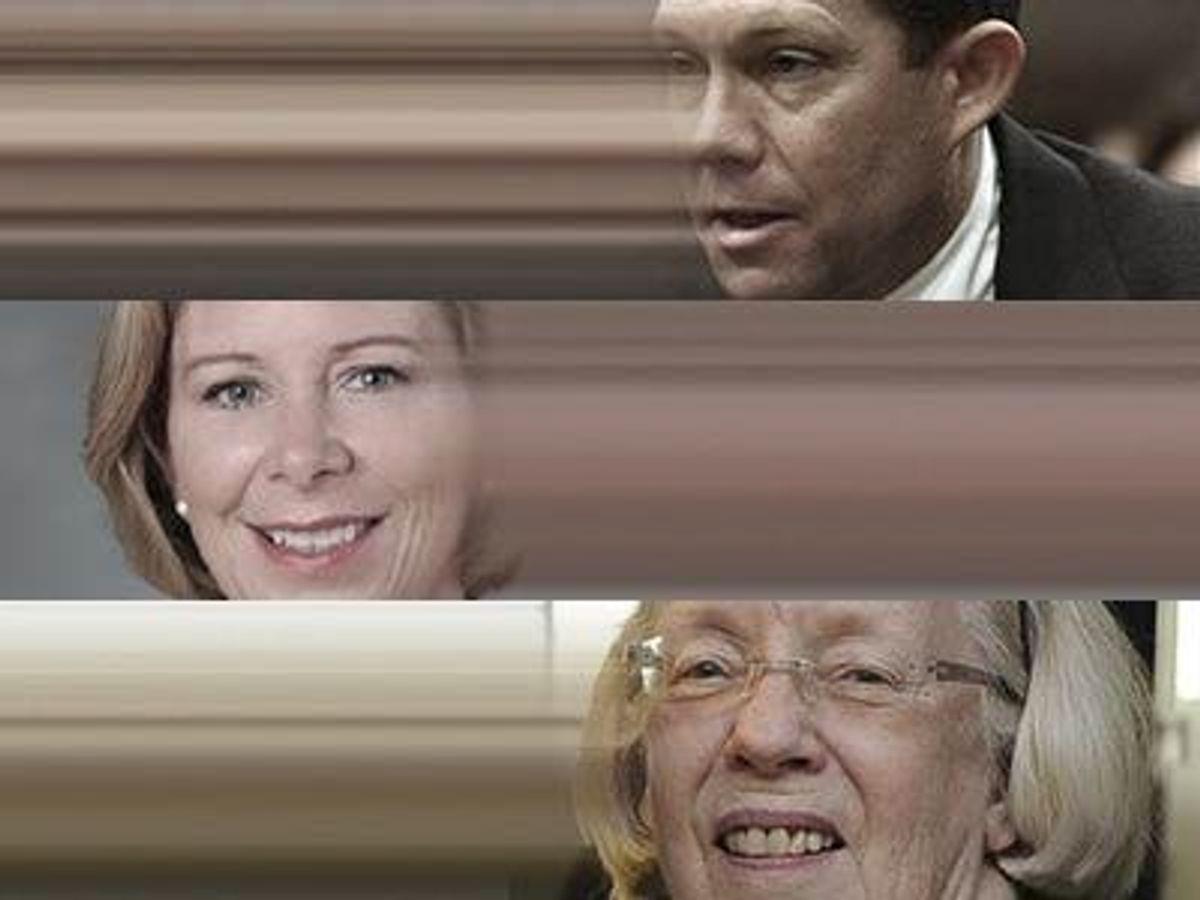A surprising decision from the Sixth Circuit Court of Appeals has propelled several marraige equality cases toward the Supreme Court, reversing rulings from lower courts declaring that marriage bans in four states are unconstitutional.
Thursday's decision conflicts with numerous federal rulings that have overturned marriage bans across the country. In September, Justice Ruth Bader Ginsburg hinted that the Supreme Court would take up a marriage case only when there was an apparent conflict in rulings from appellate courts.
In its ruling, the Sixth Circuit makes clear that it understands the direction in which the country is heading:
From the vantage point of 2014, it would now seem, the question is not whether American law will allow gay couples to marry; it is when and how that will happen.
But, the court adds, it is unable to participate in that trajectory. Crucially, Judges Jeffrey S. Sutton and Deborah L. Cook cite the 1972 Baker v. Nelson case, in which the U.S. Supreme Court held that marriage equality presented no federal issue. Explaining that the Baker precedent prevents the court from overturning a state's marriage ban, they write:
It matters not whether we think the decision was right in its time, remains right today, or will be followed by the Court in the future. Only the Supreme Court may overrule its own precedents, and we remain bound even by its summary decisions "until such time as the Court informs [us] that [we] are not."
The decision has a strong originalist tone, with the court leaning heavily on the original intent of the authors of the Constitution:
[I]t is easy to appreciate the force of this basic norm of constitutional interpretation -- that the originally understood meaning of the charter generally will be the lasting meaning of the charter.
They go even further, though, by considering the original intent of the authors of the 14th Amendment. That's important, because the same-sex couple plaintiffs' arguments rested on Equal Protection and Due Process claims.
Yes, the Fourteenth Amendment is old; the people ratified it in 1868. And yes, it is generally worded; it says: "[N]or shall any State deprive any person of life, liberty, or property, without due process of law; nor deny to any person within its jurisdiction the equal protection of the laws." Nobody in this case, however, argues that the people who adopted the Fourteenth Amendment understood it to require the States to change the definition of marriage.
The judges also suggest that under "rational basis" review, tradition is a valid reason to exempt a law from constitutional review.
Tradition reinforces the point. ... From the founding of the Republic to 2003, every State defined marriage as a relationship between a man and a woman, meaning that the Fourteenth Amendment permits, though it does not require, States to define marriage in that way.
The court's idea of traditional marriage appears to be derived from simplistic ideas about the evolution of marriage. Ignoring the institution's long history of drastically changing over time and between cultures, the court writes:
[F]or better, for worse ... marriage has long been a social institution defined by relationships between men and women. So long defined, the tradition is measured in millennia, not centuries or decades.
Of course, during those millennia, marriage has shifted countless times in practice and purpose. The idea that there could be a "traditional" marriage is itself untrue.
The court also cites procreation as justification for banning same-sex couples from marrying, setting up a straw-man argument that somehow allowing LGBT people to wed would eliminate marriage from society altogether:
Imagine a society without marriage. ... People may not need the government's encouragement to have sex. And they may not need the government's encouragement to propagate the species. But they may well need the government's encouragement to create and maintain stable relationships within which children may flourish.
Ultimately, the court advocates a "go slow" approach to marriage. The judges write that states should be free to experiment as they wish with the institution, regardless of what the U.S. Constitution requires:
To take another rational explanation for the decision of many States not to expand the definition of marriage, a State might wish to wait and see before changing a norm that our society (like all others) has accepted for centuries. ... As a matter of state law, the possibility of gay marriage became real in 2003 with the Massachusetts Supreme Judicial Court's decision in Goodridge. Eleven years later, the clock has not run on assessing the benefits and burdens of expanding the definition of marriage.
But perhaps the strangest argument put forth by the court is that gay marriage is simply too different from straight marriage for the two things to be considered in the same breath. Allowing gays to marry, the judges suggest, is too new of a phenomenon to be considered a fundamental right, even though marriage itself could be considered fundamental.
This is a "narrow articulation" approach to limiting an existing right, which is seemingly prohibited by the case Planned Parenthood v. Casey:
But the right to marry in general, and the right to gay marriage in particular, nowhere appear in the Constitution. That route for recognizing a fundamental right to same-sex marriage does not exist. That leaves the other option -- that, even though a proposed right to same-sex marriage does not appear in the Constitution, it turns on bedrock assumptions about liberty. This too does not work. The first state high court to redefine marriage to include gay couples did not do so until 2003 in Goodridge.
Troublingly, the judges seem unable to conceive of a marriage between a gay or lesbian couple that is simply "marriage." Instead, the language of the decision suggests that they consider LGBT unions to be so different from marriage that the word "marriage" can legally be assumed to always exclude gays and lesbians. To justify this, the judges point to 1967's landmark case Loving v. Virginia, which struck down bans on interracial marriage :
In referring to "marriage" rather than "opposite-sex marriage," Loving confirmed only that "opposite-sex marriage" would have been considered redundant, not that marriage included same-sex couples.
Plaintiffs have already announced their plans to petition the U.S. Supreme Court for review.













































































